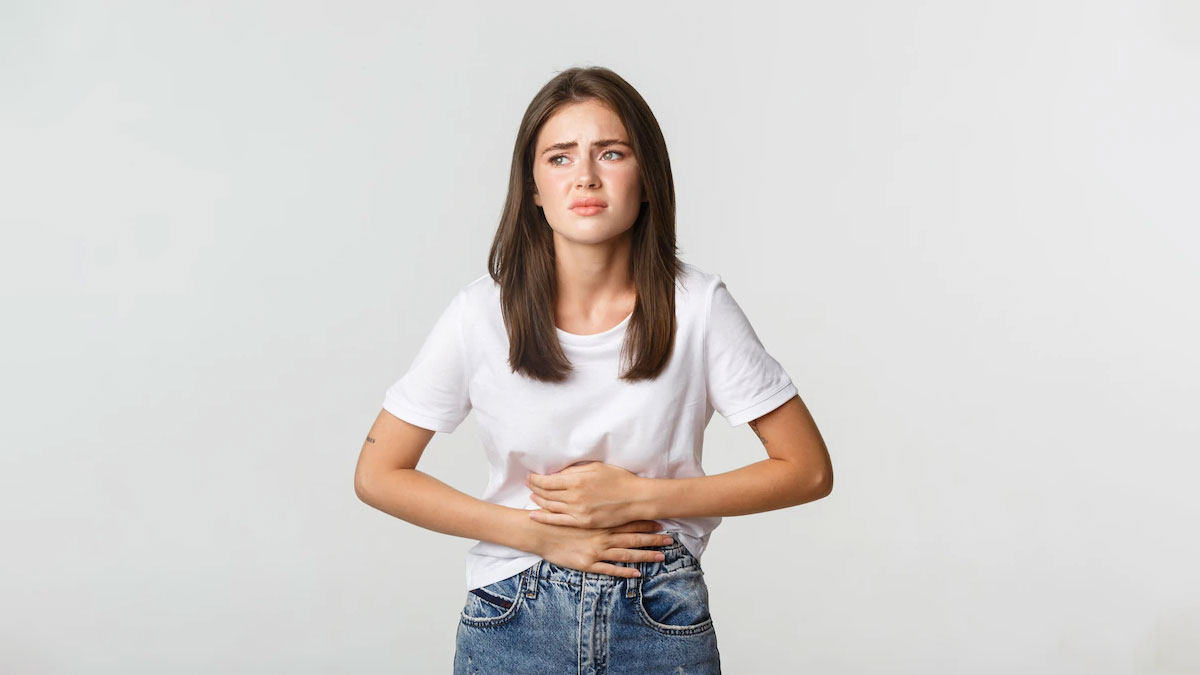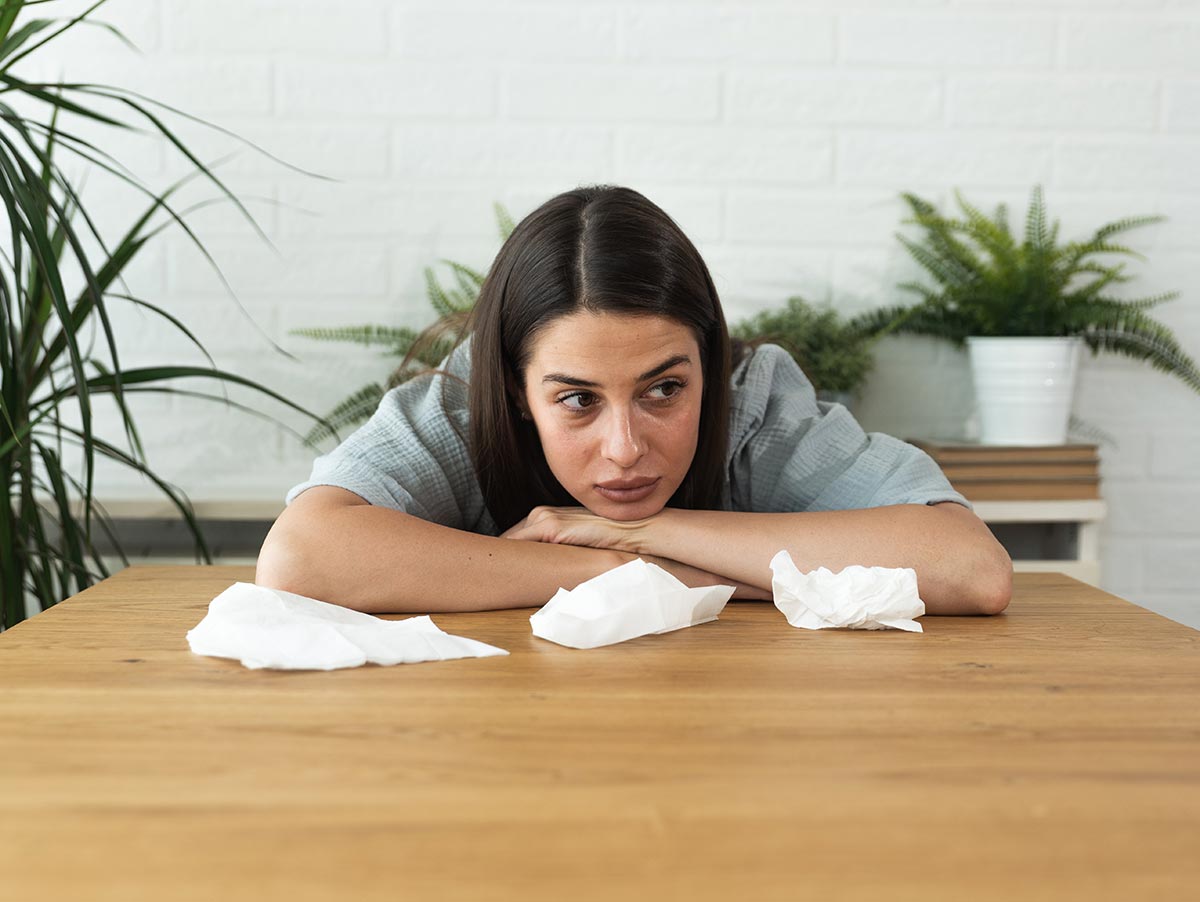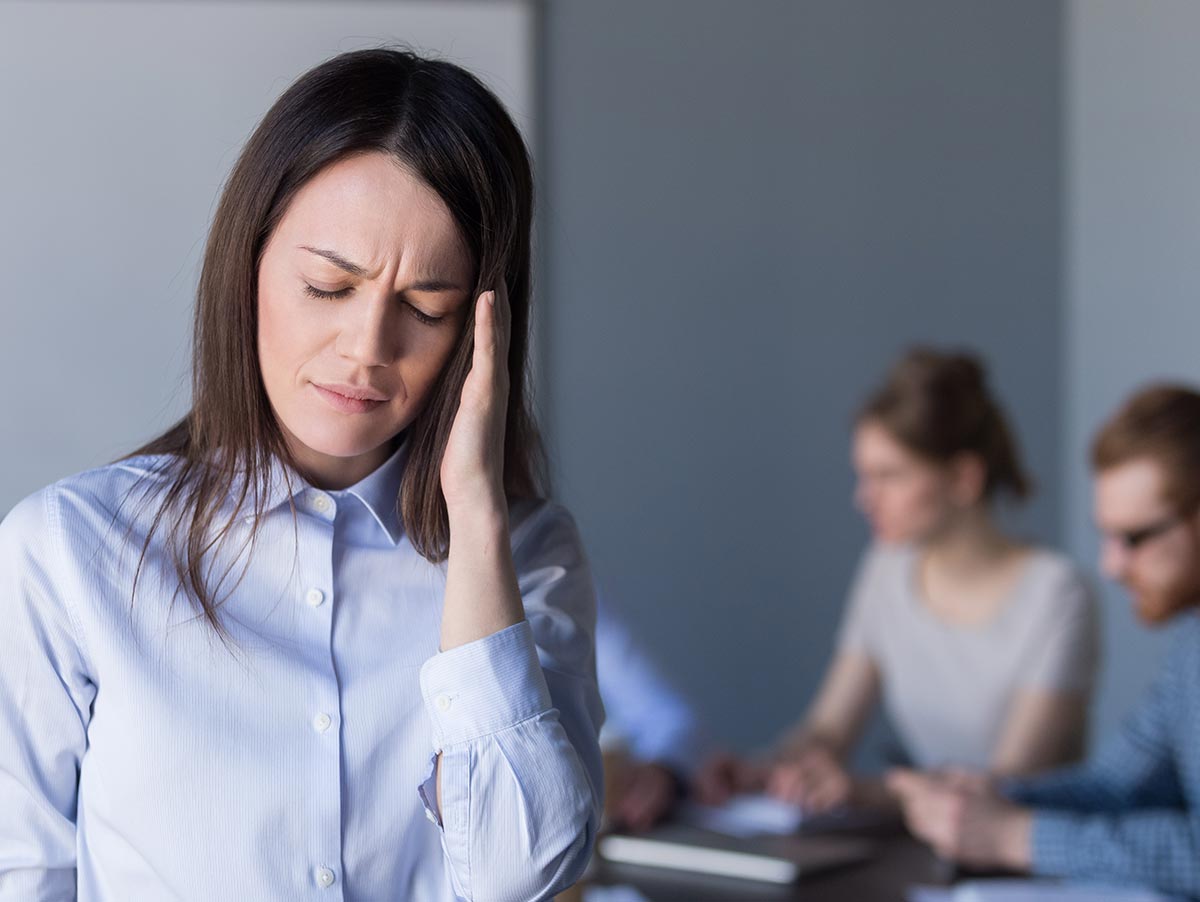
The understanding that every woman is emotional due to her hormones is a patriarchal construct based on gender performance which deviates the conversation about menstrual health and mental health. This pervasive stereotype also prevents women from seeking help and creates an image of an angry and moody PMSing woman, which trivialises the severe effects of menstruation on mental health.
Moreover, it’s a double-edged sword where menstrual disorders can cause mental health issues, and pre-existing mental health issues can worsen or negatively affect menstrual health.
Here is what experts and women with menstrual disorders have to say:
An interplay of hormonal imbalances causes mental health issues and menstrual disorders, which can have physical and emotional manifestations in patients. “At the beginning of our menstrual cycle, two hormones–progesterone and estrogen are produced by the ovaries at lower levels. This directly influences the production of serotonin which is the ‘happy chemical’ due to which there are dysmorphic symptoms,” said Dr. Jagriti Varshney, a gynaecologist and obstetrician.
She added that many women undergo premenstrual syndrome (PMS), which can cause mood changes, mood swings, dysmenorrhea (severe and frequent cramps) and discomfort.
According to a study done in 2020, as many as 90% of women of reproductive age experience premenstrual symptoms varying from mild to severe; around 20% to 40% experience PMS, and 2% to 8% suffer from premenstrual dysphoric disorder (PMDD)–a severe form of PMS.
PMDD happens in the luteal phase of the menstrual cycle–the time between when you ovulate and when your period starts, which can cause upset feelings, suicidal ideation, hopelessness, depression and anxiety disorders as well.
Dr. Varshney further said that polycystic ovary syndrome leads to hormonal imbalance in the body. “It is becoming a prevalent problem among women who experience low moods and stress. It also leads to work and school limitations that affect performance and educational achievements.”
PCOS causes metabolic issues and the production of excess androgens (male hormones), which makes eggs prone to become cysts. This can cause infertility, obesity, facial hair and severe acne in women. “Women can experience body image issues due to this, which can hurt their confidence and self-esteem,” said Dr. Anusuya Dutta, a clinical psychologist.
Dr. Varshney added that adolescent girls who face PCOS have just begun exploring their bodies, and these pathologies can result in feelings of worthlessness. “It also makes it difficult to lose weight which can further harm the mental health of girls.” Moreover, women trying to conceive can face shame and humiliation from their families, which can cause emotional duress. “PCOS can cause anovulation (when an egg does not release from the ovary during the menstrual cycle) which inhibits a woman from getting pregnant,” she said.
On the other hand, menstrual disorders like premenstrual exacerbation (PME) can “worsen or heighten symptoms of pre-existing mental health disorders.” “Women with depressive disorders or a generalised anxiety disorder can face dire consequences because of PME,” said Dr. Varshney.
Don't miss:Celebs Who Opened Up About Battling With PCOD

Pranshu Mishra, a 22-year-old student, said that she started suffering from polycystic ovary disorder (eggs released are immature or partially mature and can form cysts) from an early age. “I was in ninth grade when I was first diagnosed with PCOD after getting a sonography test. I had not gotten my periods for months and started putting on weight. The doctor told me that my life would be tough and not normal after that. The diagnosis affected my mental health and made me constantly overthink every little thing.”
It took a toll on her as small things, and uncomfortable situations started triggering her. “It just degrades your mood,” she said.
She started taking medications prescribed by the doctor. “There were so many side-effects of these medications. They react differently to different bodies. Because of it, I started feeling painful sensations in my joints, so I got a vitamin deficiency test done, but everything turned out fine.”
After a certain point, she was so fed up with the situation that she decided to do something about it. “After the doctor told me to manage my lifestyle, I started taking Zumba classes. I also started gyming regularly. When COVID-19 hit, I started working out at home. I sweated out all the calories and was able to manage the symptoms,” she said.
She got another sonography test done, and all her symptoms had normalised. “Having a good diet and exercise not only helped me manage PCOD, but it also releases endorphins which elevate the mood,” Mishra highlighted.
Meanwhile, Simran Kohli, a marketing professional who is to date dealing with PCOD, said that she was in eighth grade when she was diagnosed. “I believe PCOD manifests differently in every single woman who experiences it, so it is very individualised,” she said.
As a teenager, she faced immense body image issues because of the pressure to look good in school. “I started gaining weight. I also got acne and hair loss. My sleep cycle got ruined. I felt so sluggish and exhausted all the time,” she noted.
Her gynaecologist told her that she needs to exercise a lot more, eat healthily, and closely watch her sleeping patterns. “I hate exercising, but I had to make an effort to eat leafy vegetables and exercise during the weekends, despite my workload. But unfortunately, I cannot relish food because I start gaining weight,” said Kohli.
Kohli emphasised that being dismissive of its severity is common. “I have heard so many times– “you’re too moody”, “you’re just PMSing”, and how it was like the common cold. People have many misconceptions related to it.”
Moreover, being a smoker and a caffeine addict only worsened her problems, so Kohli had to avoid the substances and she began emulating a healthy lifestyle to manage her symptoms.
Don't miss:PCOS-Related Pregnancy Myths You Need To Stop Believing

Dr. Dutta said that one could develop a care package. “This can include scented candles, something soft to touch, soul food, favourite movies and songs.”
Moreover, she highlighted that there is little awareness that everybody’s menstrual cycle appears differently.“You might not experience low moods and irritability, but someone else might, so be conscious about this and act compassionately,” she said.
She believes that mood disorders related to menstrual health are difficult to diagnose. “It might be debilitating to interact with people during this time, but seeking mental health support is alright. Don’t be afraid to ask questions and consult a gynaecologist. Get multiple opinions if possible.”
She also noted that one should track their mood before and after their periods to identify patterns, thus aiding them in getting support earlier. Mood charts and journals can help with this.
Most importantly, her advice to women is to be kind to themselves and realise that they are not at fault.
Our aim is to provide accurate, safe and expert verified information through our articles and social media handles. The remedies, advice and tips mentioned here are for general information only. Please consult your expert before trying any kind of health, beauty, life hacks or astrology related tips. For any feedback or complaint, contact us at [email protected].